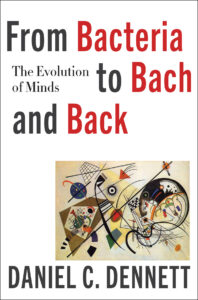Artifacts already exist—and many more are under development—with competences so far superior to any human competence that they will usurp our authority as experts, an authority that has been unquestioned since the dawn of the age of intelligent design. And when we cede hegemony to these artifacts, it will be for very good reasons, both practical and moral. Already it would be criminally negligent for me to embark with passengers on a transatlantic sailboat cruise without equipping the boat with several GPS systems. Celestial navigation by sextant, compass, chronometer, and Nautical Almanac is as quaint a vestige of obsolete competence as sharpening a scythe or driving a team of oxen. Those who delight in such skills can indulge in them, using the Internet to find one another, and we celestial navigators can prudently bring our old-fashioned gear along, and practice with it, on the off chance that we will need a backup system. But we have no right to jeopardize lives by shunning the available high-tech gadgets.
We all still learn the multiplication table up to 12×12 and how to use it for larger numbers (don’t we?), and we can do long division problems with pencil and paper, but few know how to execute an algorithm for extracting a square root. So what? Don’t waste your effort and brain cells on tasks you can order by pressing a few keys or just asking Google or Siri. The standard response to the worriers is that when educating our children, we do need to teach them the principles of all the methods we ourselves are still adept at using, and for this comprehension a certain minimal level of actual experience with the methods is practically valuable, but we can (probably) get the principles to sink in without subjecting our children to old-fashioned drudgery. This seems to make good sense, but how far does it generalize?
Consider medical education. Watson is just one of many computer-based systems that are beginning to outperform the best diagnosticians and specialists on their own turf. Would you be willing to indulge your favorite doctor in her desire to be an old-fashioned “intuitive” reader of symptoms instead of relying on a computer-based system that had been proven to be a hundred times more reliable at finding rare, low-visibility diagnoses than any specialist? Your health insurance advisor will oblige you to submit to the tests, and conscientious doctors will see that they must squelch their yearnings to be diagnostic heroes and submit to the greater authority of the machines whose buttons they push. What does this imply about how to train doctors? Will we be encouraged to jettison huge chunks of traditional medical education—anatomy, physiology, biochemistry—along with the ability to do long division and read a map? Use it or lose it is the rule of thumb cited at this point, and it has many positive instances. Can your children read road maps as easily as you do or have they become dependent on GPS to guide them? How concerned should we be that we are dumbing ourselves down by our growing reliance on intelligent machines?
So far, there is a fairly sharp boundary between machines that enhance our “peripheral” intellectual powers (of perception, algorithmic calculation, and memory) and machines that at least purport to replace our “central” intellectual powers of comprehension (including imagination), planning, and decision-making. Hand calculators; GPS systems; Pixar’s computer graphics systems for interpolating frames, calculating shadows, adjusting textures and so forth; and PCR and CRISPR in genetics are all quite clearly on the peripheral side of the boundary, even though they accomplish tasks that required substantial expertise not so long ago. We can expect that boundary to shrink, routinizing more and more cognitive tasks, which will be fine so long as we know where the boundary currently is. The real danger, I think, is not that machines more intelligent than we are will usurp our role as captains of our destinies, but that we will over-estimate the comprehension of our latest thinking tools, prematurely ceding authority to them far beyond their competence.
Daniel Clement Dennett III, From Bacteria to Bach and Back: The Evolution of Minds, 2017.
